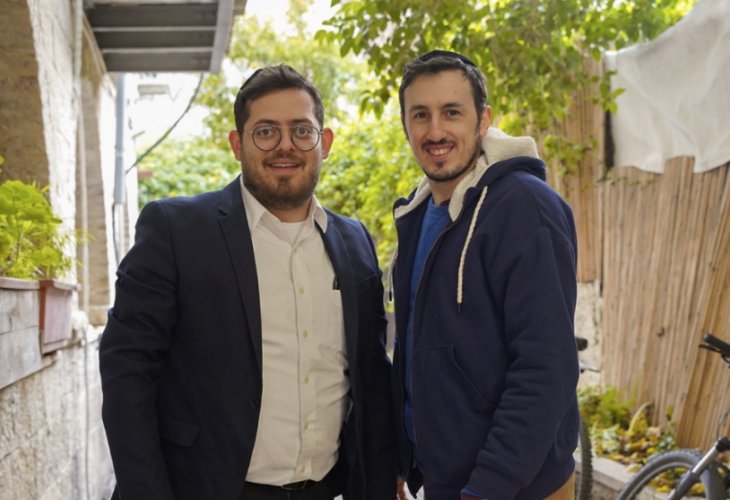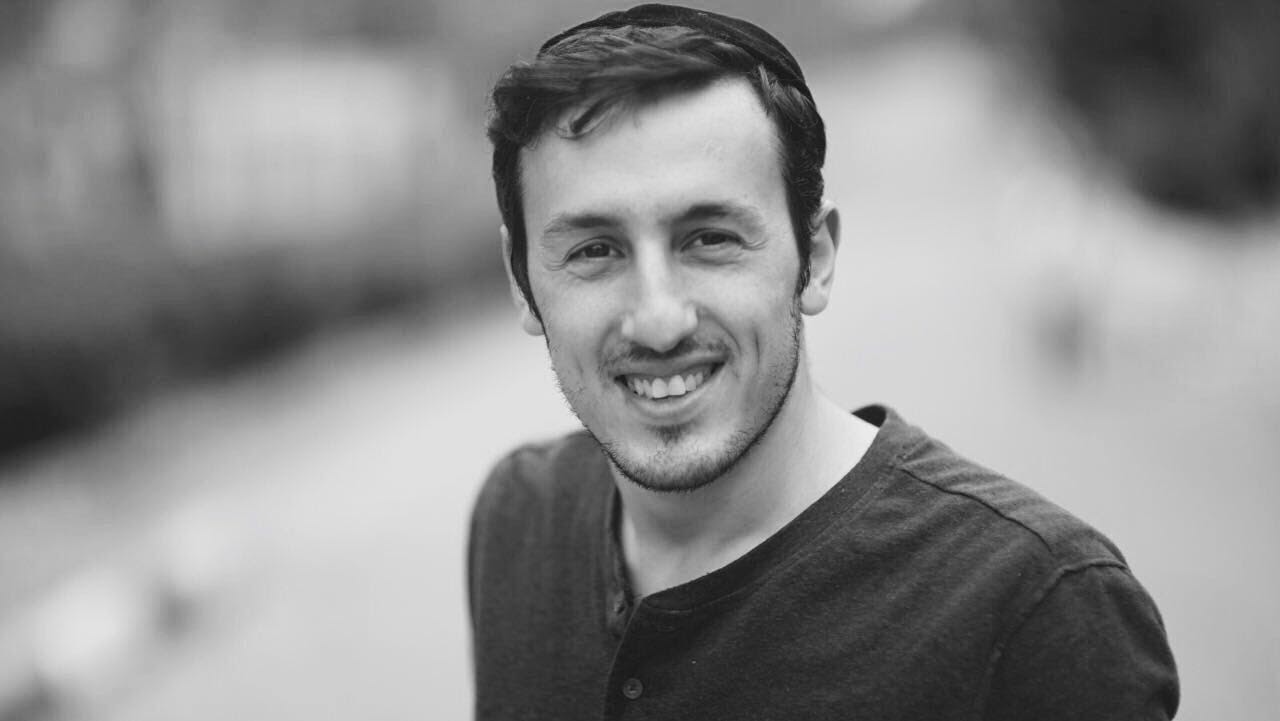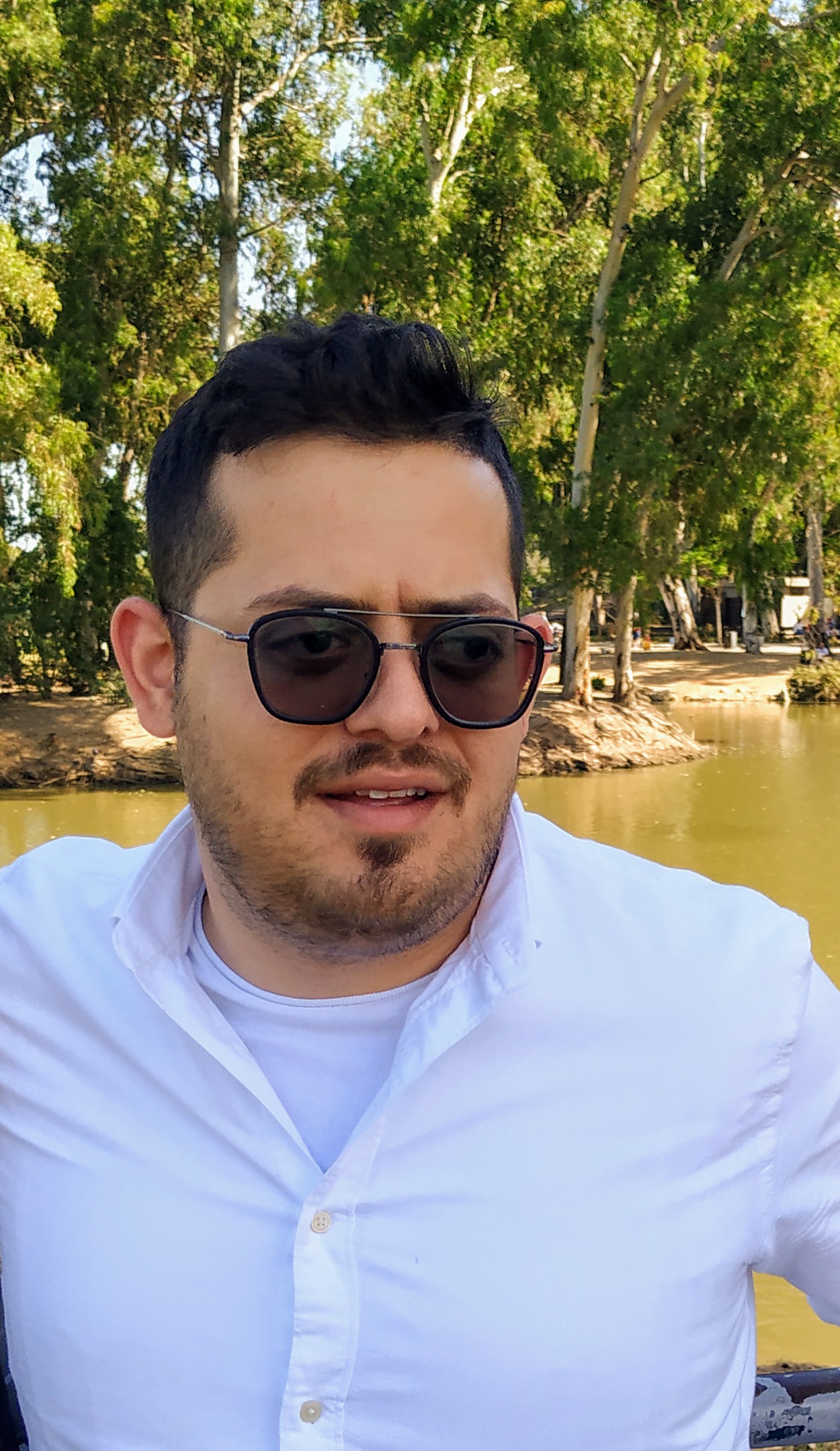"Everything Exploded at Once, It Was Amazing"; First Interview with 'Balagan' Creators
A few months ago, the creators of 'Balagan' released their first video and immediately went viral online. Now, in their first interview, they talk about the years leading up to their breakthrough, the positive and negative feedback they receive, and reveal how and when they hope to start making money from it.
 Meni Vakstock and Efi Sckokovsky
Meni Vakstock and Efi SckokovskyContrary to the catchy stage name they chose for themselves, in the professional work of the 'Balagan' creators - Meni Vakstock and Efi Sckokovsky - nothing is disorganized. Great help from above, years of preparation, and months of focused work - initiated and executed by the two - led to the significant explosion of their humorous videos in the Orthodox world and beyond several months ago; an outburst whose viral speed was second only to the spread of the coronavirus.
"After a long deliberation, we decided to go with the name 'Tzimmes'," say the two - in their first interview, "We already had an animated logo, and we were ready to go out into the world with that name. Just before it happened, we found out there was a production company with that name, so we looked for another name.
"We don't remember who suggested it, but after 'Tzimmes' fell through, one of our friends suggested the name 'Balagan'. After a brief deliberation, we decided to go with this name because it's cool, short, and to the point, and unlike other names that came up - it's familiar to all types of populations, Orthodox, religious, and secular - who by the way very much enjoy our sketches, although they're primarily aimed at the Orthodox and focus on them. We get a lot of warm feedback from people who don't keep Torah and mitzvot, and that's very heartening."
 Meni Vakstock
Meni Vakstock
Taking Root
Indeed, a few months ago, 'Balagan' creators, Meni Vakstock, 32, married and residing in Bnei Brak, a director and video creator, and Efi Sckokovsky, 27, married and residing in Kiryat Ye'arim, a yeshiva student, content creator, and actor, stormed into our lives. It is well known that the Orthodox world is rich in important and diverse content, but in the area of humor - according to many, this world needs a significant leap forward. For this reason, their videos spread like wildfire reaching hundreds of thousands of views in a short time, and were like cold water to a tired and overly serious soul. The two write the videos together, and additionally, Efi stands at the forefront as the lead actor, while Meni is responsible for directing, managing filming days, and overseeing the work of photographers and editors, plus he occasionally makes short cameo appearances.
For every good thing, there are roots that someone nurtured, and in this context, it's interesting to expose the years and preparations that preceded the big breakout of the two. "I was born in Jerusalem," Vakstock recounts, "And although currently I'm in exile in Bnei Brak, I still define myself as a Jerusalemite. I come from an Orthodox family, a modern Hassidic household. My father and I were educated in Lithuanian yeshivot, although we are Gerrer Hassidim. I got married at 24, studied part-time, and gradually developed my abilities as a video creator and director. I started editing on a small scale before I got married, but after the wedding, it definitely went up a notch. As time passed, I developed more and more, got a degree in advertising and communication, and invested a lot of time in learning and developing in the field. Today, thank God, I'm doing big and commercial projects for large companies, making high-level films, and also lecturing on directing and photography at the 'Jewish Film School' in Yad Binyamin.
"I was also born in Jerusalem," Sckokovsky says, "and still live in the area. My parents became religious and aligned with the Lithuanian stream, and naturally, that was the education we received. I moved through several small yeshivot, and since the age of 18 till now I've been studying in Rashi Yeshiva. Some of my brothers studied in Rashi Yeshiva before me; they are very talented in acting, and therefore often participated in plays staged at the yeshiva. When I came to the yeshiva, I started acting too, and Rabbi Milzsky, the dean, guided and instructed me on how to do it properly, and also pushed me to pursue it. He used to repeatedly say that if Hashem gave someone talent – they must use it.
 Efi Sckokovsky
Efi Sckokovsky"Efi and I had a mutual friend, and I often edited videos for him," Vakstock says. "In one of the videos I edited, Efi appeared, and that's how I got exposed to him. The moment I saw him, I realized there was something special here. Eight years ago, I filmed sketches with some friends, of course not as invested as now, and we were ahead of our time. In those years, the Orthodox community was not as strong on the internet as it is today. It did relatively well for the time it was released, and those sketches have hundreds of thousands of views on YouTube, but we definitely were ahead of our time. Alongside everything else I did, I always had this bug for creating funny videos, so when I saw Efi, I sent him a message and suggested we meet.
"We met, I told Efi that I had material, and suggested we just start. We thought about what angle to take, and how to do it, and eventually, we understood we needed to go for short comedic sketches. At this stage, we dove into several months of work, and after a long and not simple process, we had five videos completed. During that period, at the start, we barely had a budget. A filming day, after quite a few discounts, costs around 15 thousand shekels. I have many friends in the industry, I asked for favors and promised to return them, and thanks to great help from above, we filmed and edited the five sketches, and started sending them to friends to get feedback."
Like a Breath of Fresh Air
"The feedback was excellent," Sckokovsky says, "and we decided to upload our first video to the internet. It was on a Saturday night, and since then, almost every Saturday night, we upload a video. We opened YouTube, Facebook, and Twitter accounts for Balagan, uploaded the video on each platform, and it also went up that same night on one of the famous Orthodox websites. They heard it was happening and wanted to publish it. We knew we had something strong, quality content, but we had no idea how much. Everything exploded at once, it was simply crazy.
"The first video reached, in less than a day, 15 thousand views on YouTube, 70 thousand views on the Orthodox site I mentioned, ten thousand on Twitter, and five thousand more on Facebook. Today almost every video of ours has over 100 thousand views on YouTube, plus a similar number on various social networks. If we add WhatsApp and emails to that, we can estimate that each of our videos reaches around half a million views or more.
"Additionally, it's important to remember that internet experts claim that if you get ten thousand views somewhere, it means your video was actually seen by at least twenty thousand, at least twice as many, because often several people watch together. Moreover, there are dozens if not hundreds of views that we can't measure, because they happen through emails and of course WhatsApp. When we released our first video, we announced that there's an option to sign up to receive the videos by email, and we received tens of thousands of requests. And if that's not enough, people don't just sign up, they literally ask. They beg. They write to us that they have no way to watch kosher humor and that they need it like a breath of fresh air."
How much did the success surprise you?
"It surprised us very much. We believed it would succeed, but not so quickly. For example, today we have over 60 WhatsApp groups, each with 250 people receiving our weekly videos. From there it obviously reaches many more. We hardly engaged in promoting the videos, and they simply went viral on their own. We've already received dozens of invitations to perform in various places - seven blessings, yeshivas, celebrations. We have materials that can be performed on stages as well, but we are not doing that yet, because we're focusing on video.
"And over time," Sckokovsky continues, "It just keeps growing stronger. Records we've reached are being broken again and again. One of the amazing things is that as time goes on - more and more people recognize me in the street. The truth is that for several years it was clear to me that this would happen, and yet - when it happens, it's special and surprising. And it happened in a big way. In every Orthodox neighborhood I walk through, I'm recognized at every moment. A few weeks ago, I gave a hitchhiker a ride, and throughout the half-hour journey, he couldn't stop laughing even though I didn't say a word. In my opinion, 95% of Orthodox Jews have been exposed to our content. Including the ultra-Orthodox conservatives."
Alongside the great success, what are your challenges? The less successful days?
"People eventually get a one-minute video," Vakstock says, "but those who don't engage in such creation don't understand the mental and physical effort involved in such a thing. How much is invested in a one-minute video. And beyond the mental efforts, there's all the technical side of coordination, production, filming, editing, and many other things. Furthermore, another not so simple thing, although, thank God, it happens very little, is the matter of criticism. Most of the feedback we receive is good, but naturally, people also have comments.
"On the other hand, it's clear to me that if no one criticizes you, it means you don't exist. Efi got some remarks from his father, who thought we needed to do some things differently. A few weeks ago, my brother told me he was bothered by one of our videos where the yeshiva student looked shabby and the secular person well-dressed. One of the good things that come out of this is that we invest a lot of thought into what to include, and more so - what not to include. Although our videos are not intended for children, we know children watch them too, so we act accordingly. And of course, above all, it is most important to us never to personally offend anyone. This applies to everything we do and will do, not just the sketches. And beyond all that, there is also, of course, the financial aspect. We're investing all the money, and it's a certain risk we're taking."Regarding money, how and when can this become profitable?
"The two main areas we're counting on for this are advertisements and shows. From the beginning, we knew we wanted to get there, and it doesn't contradict the sketches. Maybe we'll do solo shows of Efi, maybe shows of the two of us, and we might even add some more actors. What is certain is that with Hashem's help, we will make excellent and hilarious shows. In addition, as I mentioned, the other avenue is advertisements, and that's something we're already working on. Also, we receive royalties from YouTube, and we recently sold the rights to someone to distribute a USB drive with our sketches.
"Bottom line," Vakstock concludes, "we do what we do to create and bring joy to people, and also to make a living. There's no shame in that. On the contrary. We see great things happening thanks to our videos. For instance, we received many touching responses from patients, elderly people, and generally from people going through tough times, telling us how much our videos help them. So, among other things, I also don't make a big deal out of the fact that Efi is more recognized than me, even though we are full partners. I try to focus on the main thing. The great benefit that is derived from our work."

